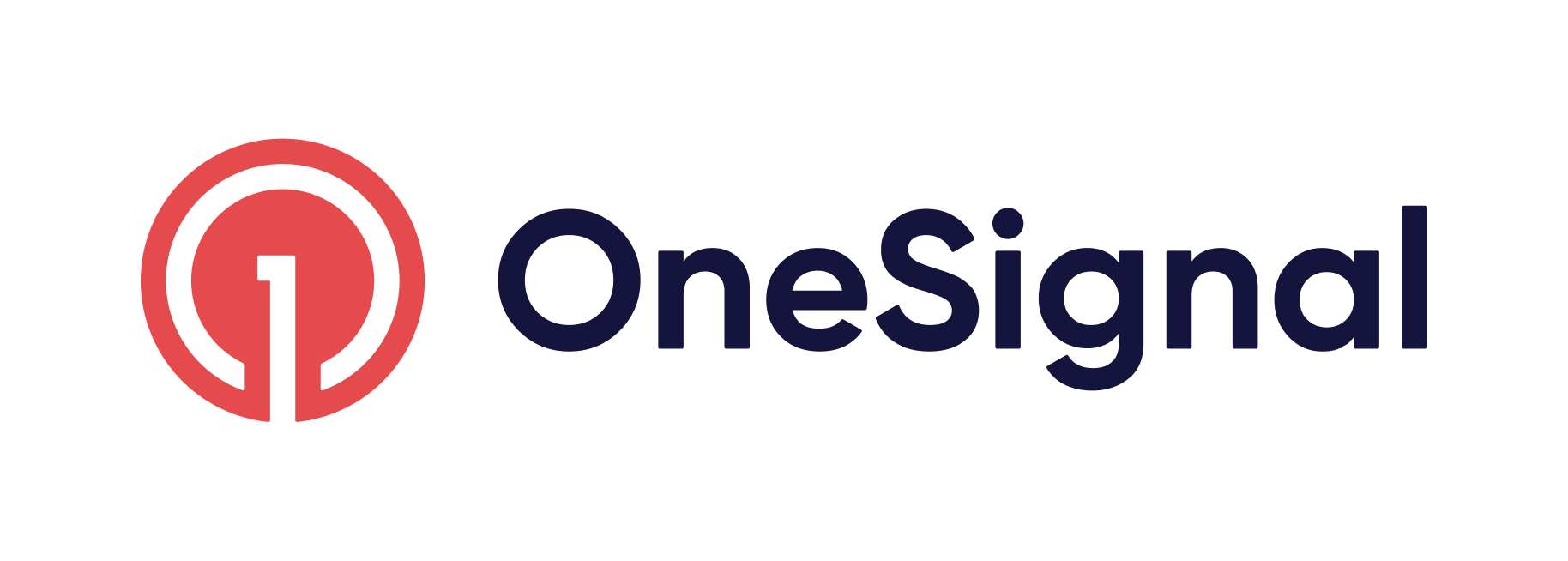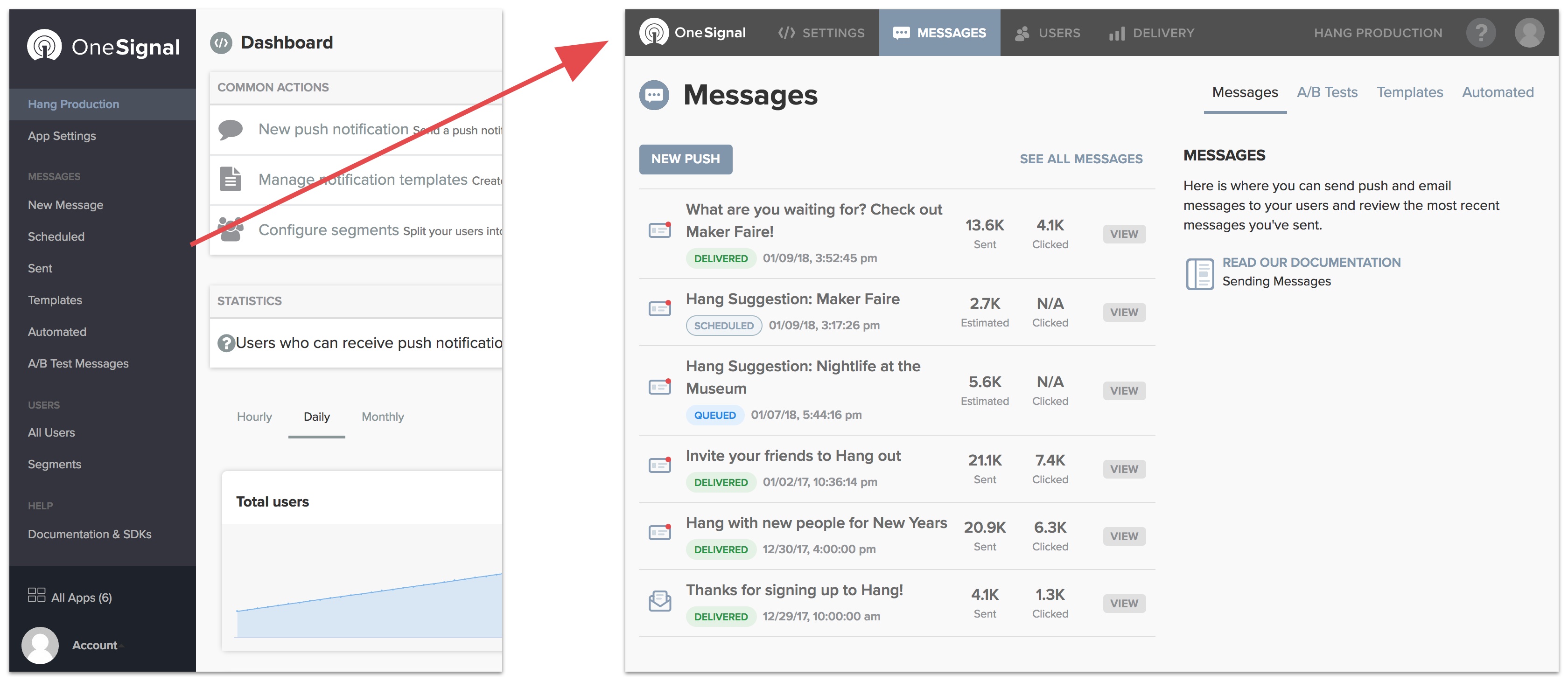
OneSignal: Complete Buyer's Guide
AI-powered push notification platform
OneSignal is an AI-powered push notification platform that has established itself as a leading solution for ecommerce businesses seeking scalable customer engagement capabilities. The platform differentiates through its open architecture approach and API-first segmentation, enabling real-time user grouping using 100+ data tags[52].
Market Position & Maturity
Market Standing
OneSignal has established a strong competitive position in the mid-market push notification segment, serving businesses from startups to enterprises with documented success across diverse ecommerce implementations.
Company Maturity
The platform handles enterprise-scale implementations like Softonic with 100M+ monthly visits[52] while maintaining effectiveness for startup deployments like Joe Coffee achieving 30% revenue growth within one month[47].
Growth Trajectory
Expanding customer base across diverse ecommerce verticals, from fashion retailers like Zenni Optical to coffee startups and enterprise media companies.
Industry Recognition
Enterprise customers consistently report 'stellar' support quality and minute-range response times[47][52].
Strategic Partnerships
Integrations with major ecommerce platforms like Shopify and Magento, enabling rapid deployment capabilities.
Longevity Assessment
Consistent customer retention and expanding use cases suggest sustainable business operations.
Proof of Capabilities
Customer Evidence
Softonic, handling 100M+ monthly visits, achieved a 50% CTR increase and doubled user retention from 12% to 24% using OneSignal's Intelligent Delivery and behavioral segmentation with over 100 user segments[52][53].
Quantified Outcomes
Joe Coffee achieved 30% revenue growth within the first month of implementation[47], while Zenni Optical reported 2x revenue growth through behavioral segmentation and automated cart-abandonment campaigns[46].
Case Study Analysis
SMB deployments like Joe Coffee can be completed in 'hours not weeks'[47], while mid-market retailers typically require 30-60 days for full transformation due to data integration requirements[46][52].
Market Validation
Enterprise customers report 'stellar' support quality and minute-range response times[47][52].
Competitive Wins
The platform's open architecture enables multi-model integration supporting external AI platforms like Databricks and AWS SageMaker, contrasting with closed ecosystem approaches[39][43].
Reference Customers
Joe Coffee (startup coffee retailer), Zenni Optical (mid-market eyewear), Softonic (enterprise software platform), Whisker (pet product retailer), and THG (enterprise retail group)[45][46][47][49][52].
AI Technology
OneSignal's AI technology core centers on predictive timing optimization and behavioral personalization through machine learning algorithms.
Architecture
Open architecture approach that enables API-first segmentation and external AI platform integration, supporting connections with Databricks and AWS SageMaker[39][43].
Primary Competitors
Enterprise-focused solutions like Braze and Airship, mid-market alternatives like Klaviyo, and budget-oriented options like PushEngage.
Competitive Advantages
API-first segmentation enabling real-time user grouping using 100+ data tags[52], combined with external AI platform integration supporting connections with Databricks and AWS SageMaker[39][43].
Market Positioning
Competing effectively in the mid-market segment through balance of functionality and accessibility.
Win/Loss Scenarios
Favors OneSignal for organizations prioritizing Shopify/Magento integration, requiring behavioral segmentation without premium AI complexity, and needing responsive support with transparent pricing.
Key Features

Pros & Cons
Use Cases
Integrations
Pricing
Featured In Articles
Comprehensive analysis of Push Notifications for Ecommerce for Ecommerce businesses and online retailers. Expert evaluation of features, pricing, and implementation.
How We Researched This Guide
About This Guide: This comprehensive analysis is based on extensive competitive intelligence and real-world implementation data from leading AI vendors. StayModern updates this guide quarterly to reflect market developments and vendor performance changes.
55+ verified sources per analysis including official documentation, customer reviews, analyst reports, and industry publications.
- • Vendor documentation & whitepapers
- • Customer testimonials & case studies
- • Third-party analyst assessments
- • Industry benchmarking reports
Standardized assessment framework across 8 key dimensions for objective comparison.
- • Technology capabilities & architecture
- • Market position & customer evidence
- • Implementation experience & support
- • Pricing value & competitive position
Research is refreshed every 90 days to capture market changes and new vendor capabilities.
- • New product releases & features
- • Market positioning changes
- • Customer feedback integration
- • Competitive landscape shifts
Every claim is source-linked with direct citations to original materials for verification.
- • Clickable citation links
- • Original source attribution
- • Date stamps for currency
- • Quality score validation
Analysis follows systematic research protocols with consistent evaluation frameworks.
- • Standardized assessment criteria
- • Multi-source verification process
- • Consistent evaluation methodology
- • Quality assurance protocols
Buyer-focused analysis with transparent methodology and factual accuracy commitment.
- • Objective comparative analysis
- • Transparent research methodology
- • Factual accuracy commitment
- • Continuous quality improvement
Quality Commitment: If you find any inaccuracies in our analysis on this page, please contact us at research@staymodern.ai. We're committed to maintaining the highest standards of research integrity and will investigate and correct any issues promptly.